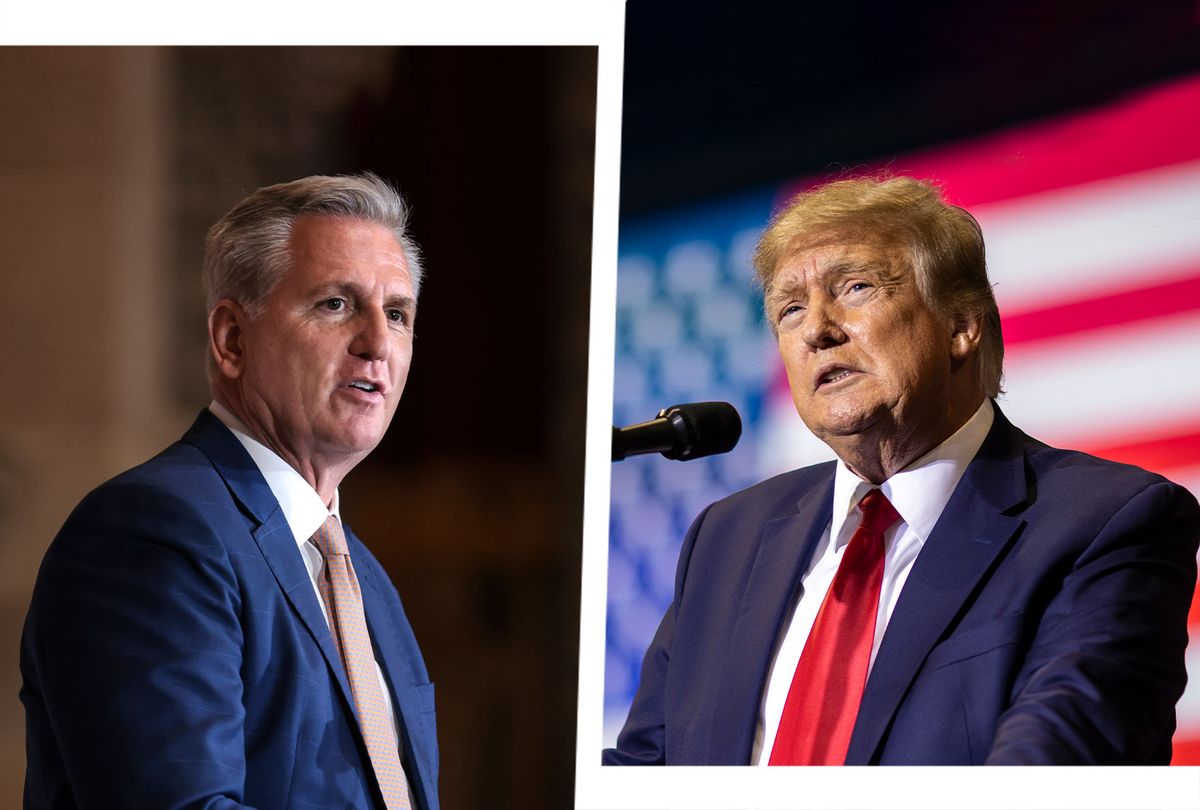The House committee investigating the Jan. 6 Capitol attack announced on Monday four criminal referrals against former President Donald Trump to the Justice Department, including inciting insurrection, conspiracy to defraud the United States, obstruction of an act of Congress and conspiracy to make a false statement.
Monday's vote by the panel marked the first time in U.S. history that Congress has referred a former president to the DOJ for criminal prosecution — the result of an extensive 18-month investigation into Trump's efforts to overturn the presidential election.
The panel also referred five other Trump allies for potential prosecution, including former chief of staff Mark Meadow and lawyers Rudy Giuliani, John Eastman, Jeffrey Clark and Kenneth Chesebro, who assisted Trump's efforts to illegally hold on to power.
Jamie Raskin reads the four criminal referrals against Donald Trump that the January 6 Committee has made to the DOJ. pic.twitter.com/PokMcFLJMK
— MeidasTouch (@MeidasTouch) December 19, 2022
The committee's referrals are not a legal action, nor do they compel any action by the Justice Department — which is carrying out its own investigation into Jan. 6 — but they do send a significant message that a bipartisan committee of Congress believes that Trump engaged in criminal behavior. Fifteen of the report's 17 findings related to Trump's role in plotting the Capitol attack.
The document identifies co-conspirators who helped Trump but holds the former president responsible for being the primary cause of the mob violence.
"That evidence has led to an overriding and straightforward conclusion: the central cause of Jan. 6th was one man, former President Donald Trump, who many others followed," the report states. "None of the events of Jan. 6th would have happened without him."
"Every president in our history has defended this orderly transfer of authority, except one,'' Rep. Liz Cheney, R-Wyo., the vice chairwoman of the committee, said at the start of the hearing on Monday.
The committee also announced that they are referring four House Republicans for sanctions by the House Ethics Committee for refusing to comply with the panel's subpoenas. They include GOP House leader Kevin McCarthy, R-Calif.; Rep. Jim Jordan, R-Ohio; Rep. Scott Perry, R-Pa.; and Rep. Andy Biggs, R-Ariz.
"We asked multiple members of Congress to speak with us about issues critical to our understanding of this attack on the 2020 election and our system of constitutional democracy. None agreed to provide that essential information," said Rep. Jamie Raskin, D-Md during the hearing.
"As a result we took the significant step of issuing them subpoenas based on the volume of information particular members possessed about one or more parts of President Trump's plans to overturn the election," he added. "None of the subpoenaed members complied, and we are now referring four members of Congress for appropriate sanction by the House Ethics Committee for failure to comply with lawful subpoenas"
Raskin announces that the J6 committee is referring four House Republicans for sanction by the House Ethics Committee for refusing to comply with subpoenas pic.twitter.com/ASTcyNmkFD
— Aaron Rupar (@atrupar) December 19, 2022
Raskin called to hold the four Republicans accountable.
"We understand the gravity of each and every referral we are making today just as we understand the magnitude of the crime against democracy that we describe in our report," he said. "But we have gone where the facts and the law lead us and inescapably, they lead us here."
Read the committee's introductory report below:
Introductory Material to the Final Report of the Select Committee by Igor Derysh on Scribd
Read more
about the Jan. 6 probe



Shares